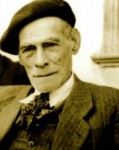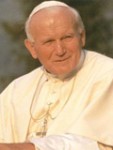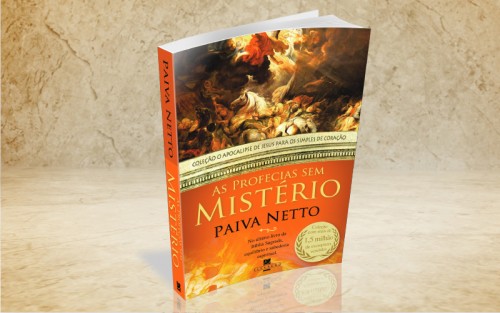The Deceased and Eternal Life
November 2 is known in many countries as the Day of the Dead (All Souls’ Day). In the Religion of God, of the Christ, and of the Holy Spirit, however, we proclaim it as the Day of the Living, since the dead do not die!

Alziro Zarur
When my dear and beloved parents, Idalina Cecília de Paiva (1913-1994) and Bruno Simões de Paiva (1911-2000), and my beloved sister, Lícia Margarida de Paiva (1942-2010), passed away, my heart was in deep pain. But I immediately started an emotional conversation with the Creator, so as to lessen the longing for them and to send them messages of peace and gratitude. I soon felt they were still alive, for the dead do not die! I usually say that when one prays, the Soul breathes, enriching one’s spiritual and human existence. Saying a prayer is essential to uncloud the horizon of the heart. Alziro Zarur (1914-1979), Proclaimer of the Religion of the Third Millennium, used to teach, and we emphasize, that “God did not create us to kill us,” and that “there is no death at any point in the Universe.” My sympathy, therefore, for those who suffer the apparent absence of their loved ones. But you can rest assured that the dead definitely do not die. One day we will all meet again.

“Death does not exist
“And pain is an illusion of our feelings.”

Teixeira de Pascoaes
Those are encouraging words by the Portuguese poet Teixeira de Pascoaes (1877-1952), who by coincidence was born on an “All Souls’ Day.” May God have him in a good place!
All Souls’ Day

Pope John Paul II
This reminds me of a pronouncement by Pope John Paul II (1920-2005), on November 2, 1983, while addressing the faithful gathered at the Vatican. His Holiness emphasized that the dialogue with the dead must not be interrupted: “We are invited to resume our dialogue with the dead, at the bottom of our hearts—a dialogue that death must not interrupt. . . . Based on the revealing words of Christ the Redeemer, we are sure of the immortality of the soul. Actually, life does not end on the horizon of this world. . . .” [Emphasis added.]
That explains the relevance of reflecting on this inexorable fact: life is an infinite journey, at times here, on Earth, at times out there, in Heaven. It is understandable that we miss those who are gone, but we must not cry excessively, since our acceptable pain may disturb them in the Spiritual World, as they adapt to their new situation.
Lessons From an Unavoidable Phenomenon
The day will come when some thinkers will not do without the comforting fact that Life is Eternal. They should, above all, reflect on death instead of looking for exclusively material explanation for an unavoidable phenomenon involving the Spirit. When waking up in the Other World, many people will be greatly surprised!
Some may laugh at such modest inferences. However, indispensable intellectual minds cannot—let us say, for the sake of argument—consider themselves as partisans of unyielding convictions. Similar attitude is not compatible with the good nature of their work. Otherwise, their judgment would not be scientific, since endless investigation, free from a limiting conventionalism, favors precisely the growth of culture.
Decades ago, our brother Zarur, who we always remember, concluded that “God created human beings in such a way that they can only be happy when they are doing good deeds.” That explains the need for the continuous Solidary Love and the continuous respect for fair Justice (not to be confused with vengeance) in the hearts of people with the most brilliant intellect, as well as of the humblest individuals, so as to destroy the sterilizing mentality of hatred. Hatred is always diligent in blocking the non-criminal advance of civilization, which, in our current times, at the mercy of excessively material conditions, succumbs in desperate unreality.

Ecumenical Spiritualization
I reiterate that death does not interrupt life. Therefore, there is no end to learning. Whether on Earth or in Heaven, we keep on treading the pathway of Eternity.

As Profecias sem Mistério [The Prophecies Without Mystery
In my book As Profecias sem Mistério [The Prophecies Without Mystery] (1998), in the chapter “Progress Without Destruction,” I ponder—as anyone who wishes their people well—that no country progresses without good schools, since, among other benefits, they increase students’ creative capacity and promote their appropriate qualification. In the third millennium, Ecumenical Spiritualization of the masses will be inevitable. The death certificate of the macabre era of religious or academic intolerance―so often cultivated at the altar or at teaching establishments―comes down from Heaven.
May the Peace of God be with you all now and forever! Let us move forward, working, accomplishing, and acting with determination, courage, solidarity, and generosity, because God is present for the living, for the “dead,” for believers, and for atheists!

The comments do not represent the views of this site and are the sole responsibility of their authors. It denied the inclusion of inappropriate materials that violate the moral, good customs, and/or the rights of others. Learn more at Frequently asked questions.